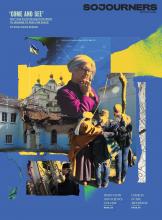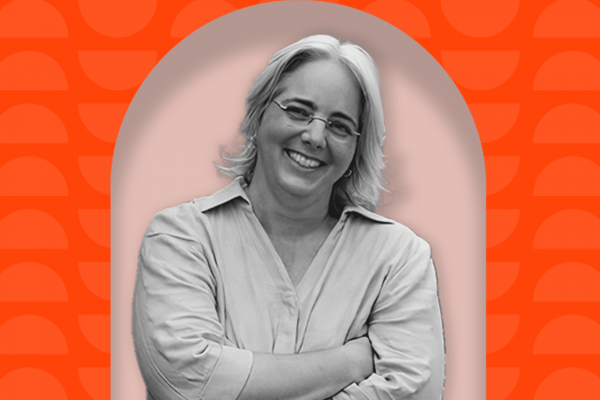IN THE SEPTEMBER/OCTOBER issue of Sojourners, senior editor Rose Berger reflects on her experience taking part in an interfaith peace delegation to Ukraine in May 2022. Editorial assistant Liz Bierly spoke with Berger, who joined Sojourners in 1985, about her Catholic faith, her commitment to nonviolence and peace efforts, and “how to live the good life.” You can read her feature, ‘Why Our Faith Delegation Went to Ukraine,’ here.
This interview has been edited for length and clarity.
Liz Bierly, Sojourners: You began working at Sojourners by joining the fellowship program soon after college. What led you to the organization, and why have you stayed at the magazine?
Rose Berger: My faith and activism in college led me to Sojourners when I was 22. The fellowship program was a very strong faith formation process for me in radical Christianity and introduced me to a social movement and history that I’d only read about. When I applied to Sojourners in 1985, I wanted to work on the magazine team, but I had so much experience in community organizing that they assigned me to work with the advocacy and organizing teams. As soon as a magazine position came open, I jumped on it—and I’ve never looked back.
I love working on the magazine; magazines are the most curated pieces of art that come into peoples’ houses. Sojourners is a way for the tradition of radical Christianity in the U.S. to be carried on.
Read the Full Article

